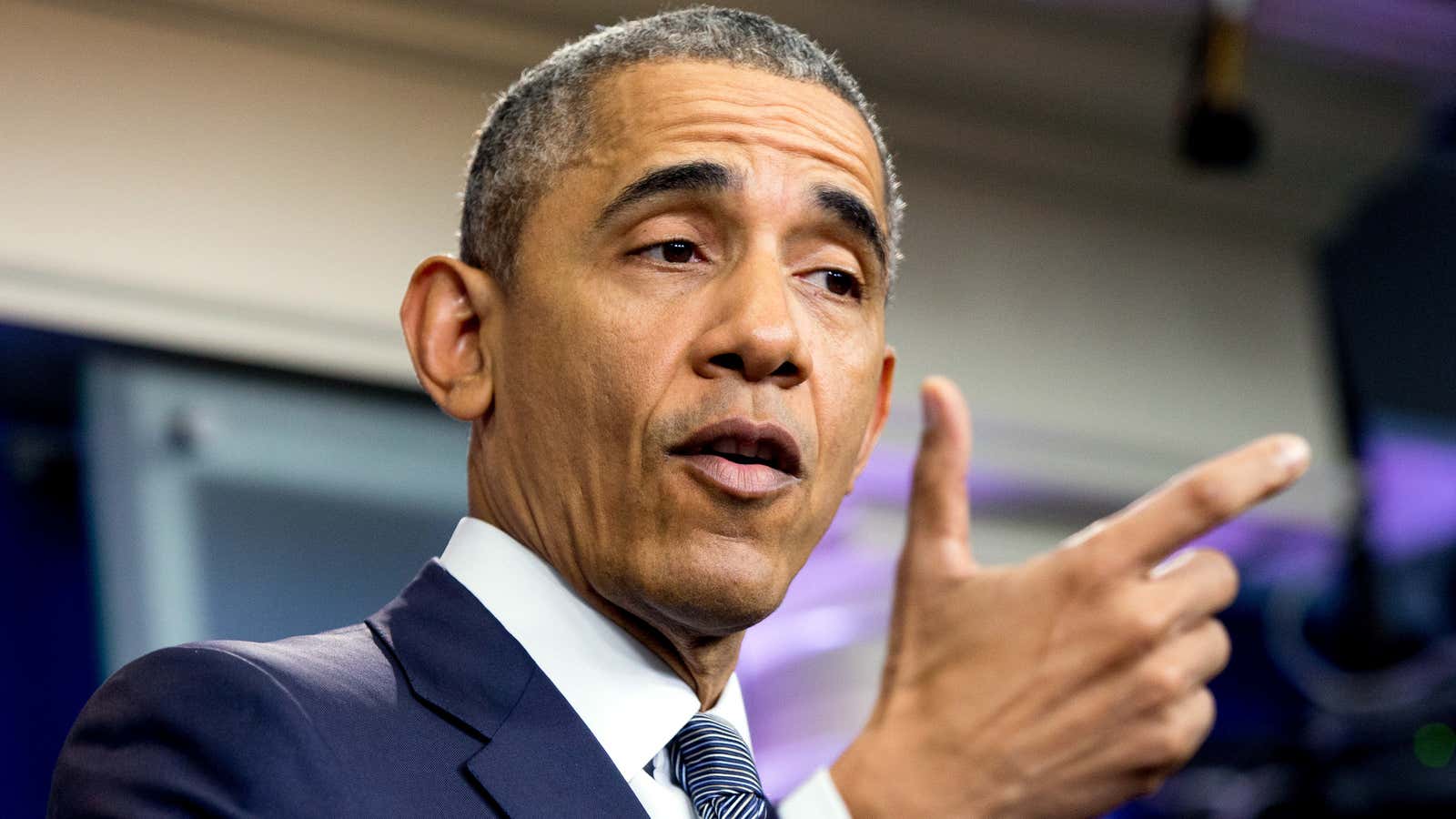Experts are baffled by the Obama administration’s new rules to fight money laundering, which appear to create a glaring new loophole for the bad actors the rules are intended to target.
Last week, the White House announced new measures to help bring shell companies, which allow their owners to hide assets, into the light. The leak of documents from a Panamanian law firm, Mossack Fonseca, highlighted the widespread abuse of these companies by criminals and tax-dodgers.
In the US, corporate rules are set largely at the state level, and no state requires companies to disclose beneficial owners; some go even further to keep ownership opaque. Absent federal legislation changing those rules, the Obama administration could only use existing bank regulations to go after shell companies.
To do so, it used the attention on the Panama Papers to enact a “customer due diligence” rule requiring US banks to know the beneficial owners of all their clients. The measure is heartily opposed by the business community, given the expected cost of compliance—and the likely loss of illicit business doesn’t make it any more endearing.
But after reviewing the text of the rule, lawyers and researchers who work with financial transparency groups like Global Witness and the Financial Accountability and Corporate Transparency Coalition say that it will do little to deter anonymous corporate activity. Instead, some critics say, it creates new opportunities for clever lawyers to hide assets.
Most glaring? The internationally accepted definition of beneficial owner—the actual human being who truly gains from the company’s equity—is altered in the law. Under the new rules, anyone who owns less than 25% of the company need not be reported, and the appointed president of a shell company can be listed as the beneficial owner.
“That’s kind of the opposite of what the term as has always meant,” Elise Bean, the former chief counsel of the Senate Permanent Subcommittee on Investigations, told reporters last week. “At Mossack Fonseca, they could say, ‘I’m appointing my law firm employee the president of the shell company, and now under US rules, I can name my employee the beneficial owner of that company.’ That just doesn’t make sense.”
Heather Lowe, the general counsel at the NGO Global Financial Integrity, notes that the US Securities & Exchange Commission requires people to report 5% ownership of companies, even as the US Treasury Department argues that reporting anything less than 25% is an undue burden.
The lawyers and researchers who made these critiques say they are pleased that Obama is finally taking some action against shell companies, but worry that tax evaders—along with terrorists and drug traffickers—could exploit the new loopholes. To truly get to the bottom of shell companies, they say, far more transparency is needed.
